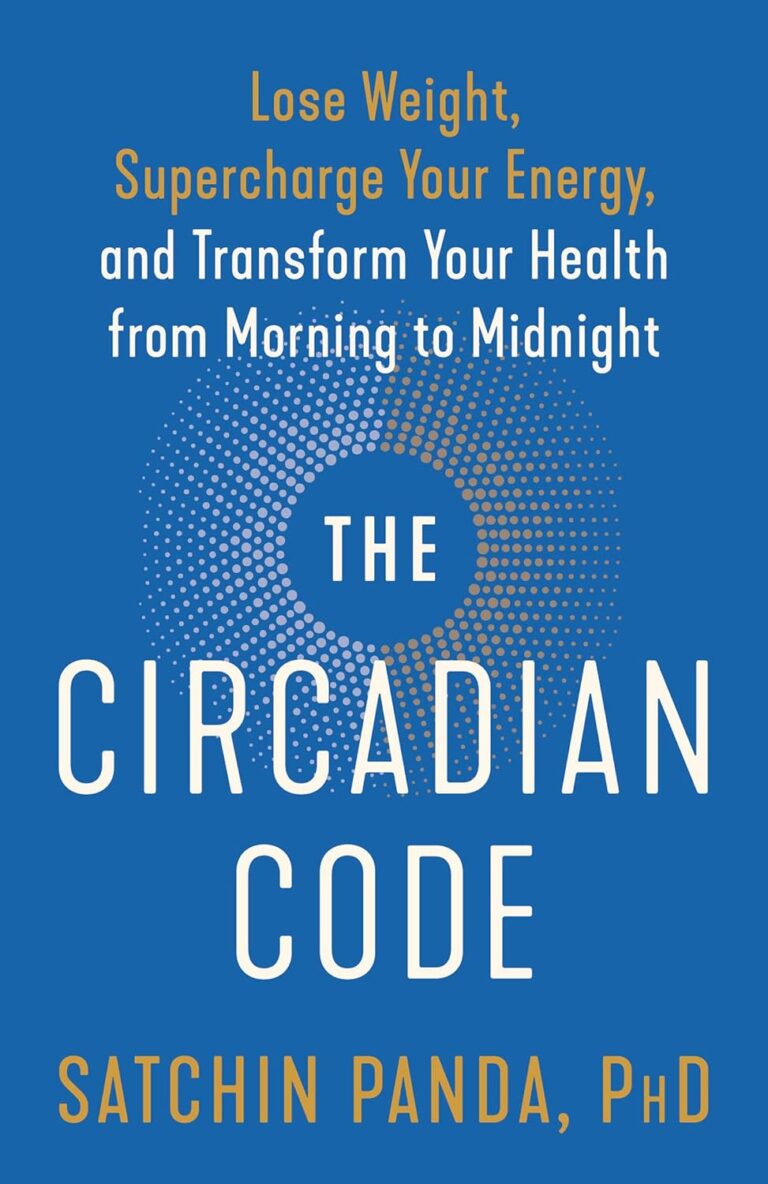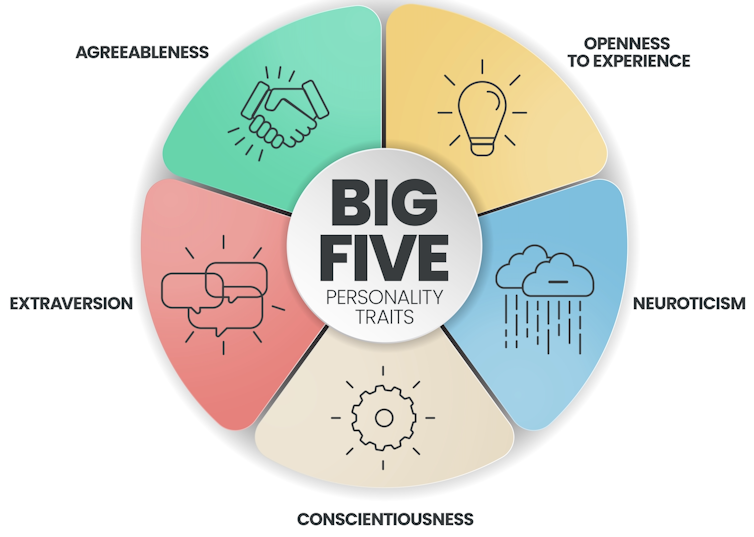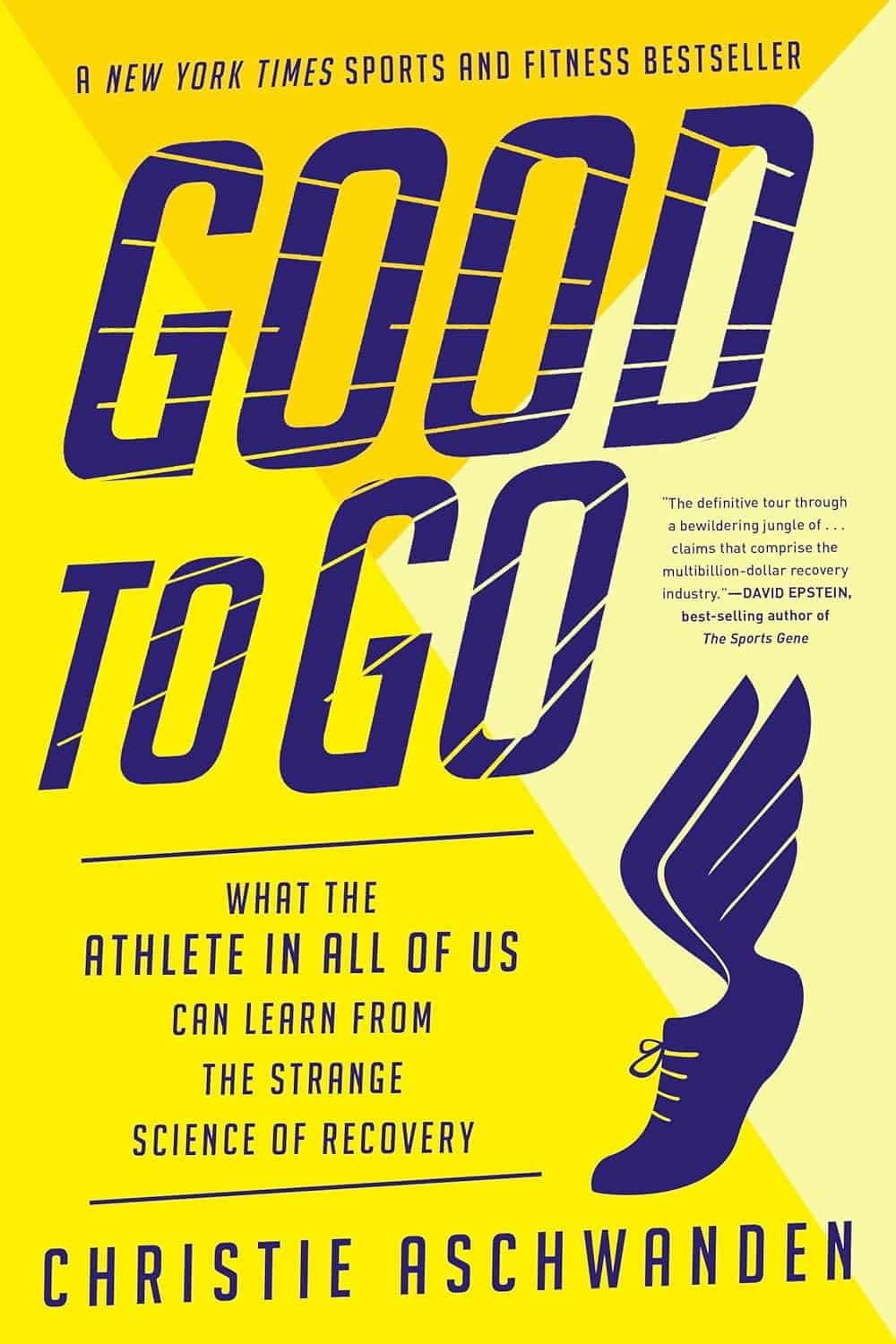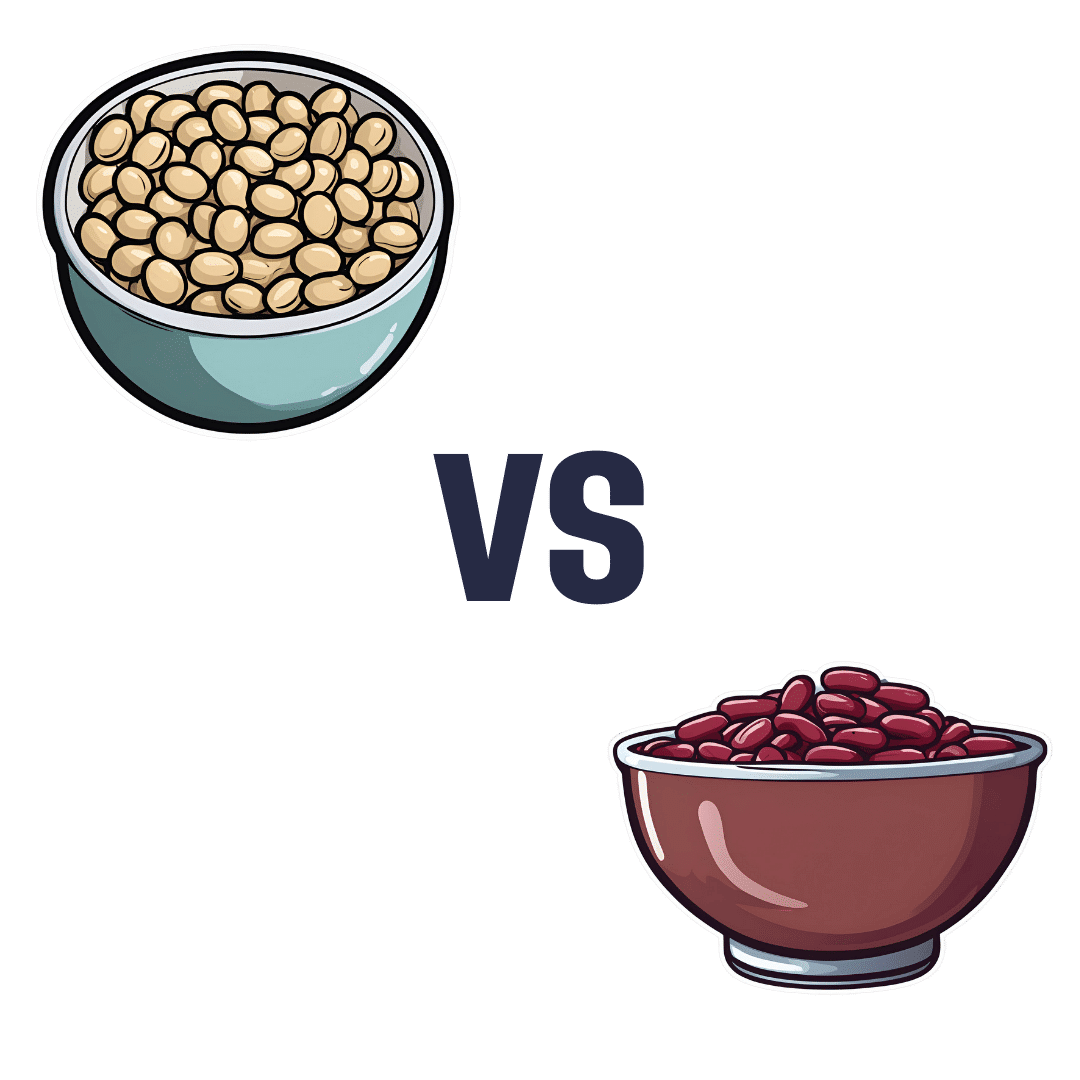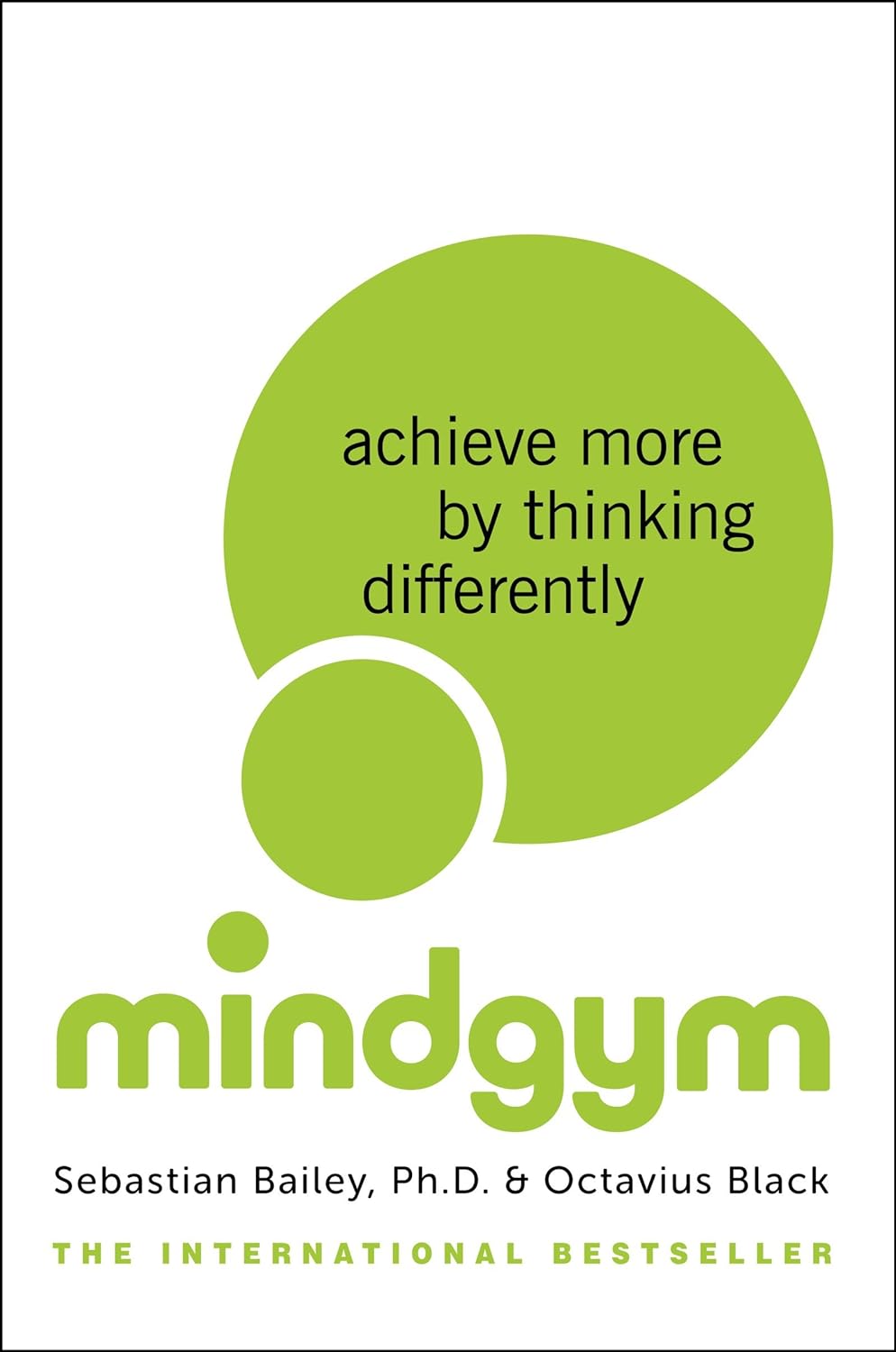
The Mindgym: Wake Your Mind Up – by Dr. Sebastian Bailey and Octavius Black
10almonds is reader-supported. We may, at no cost to you, receive a portion of sales if you purchase a product through a link in this article.
Since this reviewer got her copy, the subtitle and marketing of the book have changed, but the content has not. It’s now being marketed as “achieve more by thinking differently” like a pop-psychology business book. But it’s not that. What, then, is it?
It’s 20 chapters of exercises for different kinds of thinking. And yes, the exercises will help those hungry 25–35-year-old MBAs too, but it’s more of a complete how-to-think overhaul.
Its exercises cover psychology and philosophy, creativity and communication, logic and relaxation, cognition and motivation, and lots more.
The style of the book is that of a workbook, and as such, it’s very clearly laid-out; one can go through them methodically, or get an overview and then dive in to whatever one wants/needs most at the moment.
Bottom line: if you’d like a book that’s a one-stop shop for honing many different kinds of thinking, this is the book for you.
Click here to check out The Mindgym, and get training yours!
Don’t Forget…
Did you arrive here from our newsletter? Don’t forget to return to the email to continue learning!
Recommended
Learn to Age Gracefully
Join the 98k+ American women taking control of their health & aging with our 100% free (and fun!) daily emails:
-
Building & Maintaining Mobility
10almonds is reader-supported. We may, at no cost to you, receive a portion of sales if you purchase a product through a link in this article.
Building & Maintaining Mobility!
This is Juliet Starrett. She’s a CrossFit co-founder, and two-time white-water rafting world champion. Oh, and she won those after battling thyroid cancer. She’s now 50 years old, and still going strong, having put aside her career as a lawyer to focus on fitness. Specifically, mobility training.
The Ready State
Together with her husband Kelly, Starrett co-founded The Ready State, of which she’s CEO.
It used to be called “Mobility WOD” (the “WOD” stands for “workout of the day”) but they changed their name as other companies took up the use of the word “mobility”, something the fitness world hadn’t previously focussed on much, and “WOD”, which was also hardly copyrightable.
True to its origins, The Ready State continues to offer many resources for building and maintaining mobility.
Why the focus on mobility?
When was the last time you had to bench-press anything larger than a small child? Or squat more than your partner’s bodyweight? Or do a “farmer’s walk” with anything heavier than your groceries?
For most of us, unless our lifestyles are quite extreme, we don’t need ridiculous strength (fun as that may be).
You know what makes a huge difference to our quality of life though? Mobility.
Have you ever felt that moment of panic when you reach for something on a high shelf and your shoulder or back twinges (been there!)? Or worse, you actually hurt yourself and the next thing you know, you need help putting your socks on (been there, too!)?
And we say to ourselves “I’m not going to let that happen to me again”
But how? How do we keep our mobility strong?
First, know your weaknesses
Starrett is a big fan of mobility tests to pinpoint areas that need more work.
Most of her resources for this aren’t free, and we’re drawing heavily from her book here, so for your convenience, we’ll link to some third party sources for this:
- Timed Up and Go—start with this, before progressing to the next!
- Sit To Rise Test—not to be underestimated (this page also has excerpts from Starrett’s mobility book, by the way)
- Shoulders/Spine/Hips—7 quick tests; note any that you can’t do, or struggle with
Next, eliminate those weaknesses
Do mobility exercises in any weak areas, until they’re not weak:
Want to train the full body in one session?
Try out The Ready State’s 10-Minute Morning Mobility Routine
Want to learn more?
You might enjoy her book that we reviewed previously:
Built to Move: The Ten Essential Habits to Help You Move Freely and Live Fully
You might also enjoy The Ready State App, available for iOS and for Android:
The Ready State Virtual Mobility Coach
Enjoy!
Share This Post
-
Not quite an introvert or an extrovert? Maybe you’re an ambivert
10almonds is reader-supported. We may, at no cost to you, receive a portion of sales if you purchase a product through a link in this article.
Our personalities are generally thought to consist of five primary factors: openness to experience, conscientiousness, extroversion, agreeableness and neuroticism, with each of us ranking low to high for each.
Extroversion is one of the Big Five personality traits. Big 5 personality traits graphic Those who rank high in extroversion, known as extroverts, typically focus on their external world. They tend to be more optimistic, recharge by socialising and enjoy social interaction.
On the other end of the spectrum, introverts are more likely to be quiet, deep thinkers, who recharge by being alone and learn by observing (but aren’t necessarily shy).
But what if you’re neither an introvert or extrovert – or you’re a bit of both? Another category might fit better: ambiverts. They’re the middle of the spectrum and are also called “social introverts”.
What exactly is an ambivert?
The term ambivert emerged in 1923. While it was not initially embraced as part of the introvert-extrovert spectrum, more recent research suggests ambiverts are a distinct category.
Ambiverts exhibit traits of both extroverts and introverts, adapting their behaviour based on the situation. It may be that they socialise well but need solitude and rest to recharge, and they intuitively know when to do this.
Ambiverts seems to have the following characteristics:
- good communication skills, as a listener and speaker
- ability to be a peacemaker if conflict occurs
- leadership and negotiation skills, especially in teams
- compassion and understanding for others.
Some research suggests ambiverts make up a significant portion of the population, with about two-thirds of people falling into this category.
What makes someone an ambivert?
Personality is thought to be 50% inherited, with the remaining being influenced by environmental factors and individual experiences.
Emerging research has found physical locations of genes on chromosomes closely aligned with extroversion-introversion traits.
So, chances are, if you are a blend of the two styles as an ambivert, one of your parents may be too.
What do ambiverts tend to be good at?
Ambiverts are flexible with talking and also listening. Cotton Bro Studios/Pexels One area of research focus in recent decades has been personality type and job satisfaction. One study examined 340 introverts, extroverts and ambiverts in sales careers.
It has always been thought extroverts were more successful with sales. However, the author found ambiverts were more influential and successful.
They may have a sales advantage because of their ability to read the situation and modify their behaviour if they notice a customer is not interested, as they’re able to reflect and adapt.
Ambiverts stress less than introverts
Generally, people lower in extroversion have higher stress levels. One study found introverts experience more stress than both ambiverts and extroverts.
It may be that highly sensitive or introverted individuals are more susceptible to worry and stress due to being more perfectionistic.
Ambiverts are adept at knowing when to be outgoing and when to be reflective, showcasing a high degree of situational awareness. This may contribute to their overall wellbeing because of how they handle stress.
What do ambiverts tend to struggle with?
Ambiverts may overextend themselves attempting to conform or fit in with many social settings. This is termed “overadaptation” and may force ambiverts to feel uncomfortable and strained, ultimately resulting in stress or burnout.
Ambiverts tend to handle stress well but feel strained when overadapting. Cottonbro Studios/Pexels But personality traits aren’t fixed
Regardless of where you sit on the scale of introversion through to extroversion, the reality is it may not be fixed. Different situations may be more comfortable for introverts to be social, and extroverts may be content with quieter moments.
And there are also four other key personality traits – openness to experience, conscientiousness, agreeableness and neuroticism – which we all possess in varying levels, and are expressed in different ways, alongside our levels of extroversion.
There is also evidence our personality traits can change throughout our life spans are indeed open to change.
Peta Stapleton, Associate Professor in Psychology, Bond University
This article is republished from The Conversation under a Creative Commons license. Read the original article.
Share This Post
-
I’m Moving Forward and Facing the Uncertainty of Aging
10almonds is reader-supported. We may, at no cost to you, receive a portion of sales if you purchase a product through a link in this article.
It takes a lot of courage to grow old.
I’ve come to appreciate this after conversations with hundreds of older adults over the past eight years for nearly 200 “Navigating Aging” columns.
Time and again, people have described what it’s like to let go of certainties they once lived with and adjust to new circumstances.
These older adults’ lives are filled with change. They don’t know what the future holds except that the end is nearer than it’s ever been.
And yet, they find ways to adapt. To move forward. To find meaning in their lives. And I find myself resolving to follow this path as I ready myself for retirement.
Patricia Estess, 85, of the Brooklyn borough of New York City spoke eloquently about the unpredictability of later life when I reached out to her as I reported a series of columns on older adults who live alone, sometimes known as “solo agers.”
Estess had taken a course on solo aging. “You realize that other people are in the same boat as you are,” she said when I asked what she had learned. “We’re all dealing with uncertainty.”
Consider the questions that older adults — whether living with others or by themselves — deal with year in and out: Will my bones break? Will my thinking skills and memory endure? Will I be able to make it up the stairs of my home, where I’m trying to age in place?
Will beloved friends and family members remain an ongoing source of support? If not, who will be around to provide help when it’s needed?
Will I have enough money to support a long and healthy life, if that’s in the cards? Will community and government resources be available, if needed?
It takes courage to face these uncertainties and advance into the unknown with a measure of equanimity.
“It’s a question of attitude,” Estess told me. “I have honed an attitude of: ‘I am getting older. Things will happen. I will do what I can to plan in advance. I will be more careful. But I will deal with things as they come up.’”
For many people, becoming old alters their sense of identity. They feel like strangers to themselves. Their bodies and minds aren’t working as they used to. They don’t feel the sense of control they once felt.
That requires a different type of courage — the courage to embrace and accept their older selves.
Marna Clarke, a photographer, spent more than a dozen years documenting her changing body and her life with her partner as they grew older. Along the way, she learned to view aging with new eyes.
“Now, I think there’s a beauty that comes out of people when they accept who they are,” she told me in 2022, when she was 70, just before her 93-year-old husband died.
Arthur Kleinman, a Harvard professor who’s now 83, gained a deeper sense of soulfulness after caring for his beloved wife, who had dementia and eventually died, leaving him grief-stricken.
“We endure, we learn how to endure, how to keep going. We’re marked, we’re injured, we’re wounded. We’re changed, in my case for the better,” he told me when I interviewed him in 2019. He was referring to a newfound sense of vulnerability and empathy he gained as a caregiver.
Herbert Brown, 68, who lives in one of Chicago’s poorest neighborhoods, was philosophical when I met him at his apartment building’s annual barbecue in June.
“I was a very wild person in my youth. I’m surprised I’ve lived this long,” he said. “I never planned on being a senior. I thought I’d die before that happened.”
Truthfully, no one is ever prepared to grow old, including me. (I’m turning 70 in February.)
Chalk it up to denial or the limits of imagination. As May Sarton, a writer who thought deeply about aging, put it so well: Old age is “a foreign country with an unknown language.” I, along with all my similarly aged friends, are surprised we’ve arrived at this destination.
For me, 2025 is a turning point. I’m retiring after four decades as a journalist. Most of that time, I’ve written about our nation’s enormously complex health care system. For the past eight years, I’ve focused on the unprecedented growth of the older population — the most significant demographic trend of our time — and its many implications.
In some ways, I’m ready for the challenges that lie ahead. In many ways, I’m not.
The biggest unknown is what will happen to my vision. I have moderate macular degeneration in both eyes. Last year, I lost central vision in my right eye. How long will my left eye pick up the slack? What will happen when that eye deteriorates?
Like many people, I’m hoping scientific advances outpace the progression of my condition. But I’m not counting on it. Realistically, I have to plan for a future in which I might become partially blind.
It’ll take courage to deal with that.
Then, there’s the matter of my four-story Denver house, where I’ve lived for 33 years. Climbing the stairs has helped keep me in shape. But that won’t be possible if my vision becomes worse.
So my husband and I are taking a leap into the unknown. We’re renovating the house, installing an elevator, and inviting our son, daughter-in-law, and grandson to move in with us. Going intergenerational. Giving up privacy. In exchange, we hope our home will be full of mutual assistance and love.
There are no guarantees this will work. But we’re giving it a shot.
Without all the conversations I’ve had over all these years, I might not have been up for it. But I’ve come to see that “no guarantees” isn’t a reason to dig in my heels and resist change.
Thank you to everyone who has taken time to share your experiences and insights about aging. Thank you for your openness, honesty, and courage. These conversations will become even more important in the years ahead, as baby boomers like me make their way through their 70s, 80s, and beyond. May the conversations continue.
USE OUR CONTENT
This story can be republished for free (details).
KFF Health News is a national newsroom that produces in-depth journalism about health issues and is one of the core operating programs at KFF—an independent source of health policy research, polling, and journalism. Learn more about KFF.
Subscribe to KFF Health News’ free Morning Briefing.
This article first appeared on KFF Health News and is republished here under a Creative Commons license.
Share This Post
Related Posts
-
Good to Go – by Christie Aschwanden
10almonds is reader-supported. We may, at no cost to you, receive a portion of sales if you purchase a product through a link in this article.
Many of us may more often need to recover from a day of moving furniture than running a marathon, but the science of recovery can still teach us a lot. The author, herself an endurance athlete and much-decorated science journalist, sets out to do just that.
She explores a lot of recovery methods, and examines whether the science actually backs them up, and if so, to what degree. She also, in true science journalism style, talks to a lot of professionals ranging from fellow athletes to fellow scientists, to get their input too—she is nothing if not thorough, and this is certainly not a book of one person’s opinion with something to sell.
Indeed, on the contrary, her findings show that some of the best recovery methods are the cheapest, or even free. She also looks at the psychological aspect though, and why many people are likely to continue with things that objectively do not work better than placebo.
The style is very easy-reading jargon-free pop-science, while nevertheless being backed up with hundreds of studies cited in the bibliography—a perfect balance of readability and reliability.
Bottom line: for those who wish to be better informed about how to recover quickly and easily, this book is a treasure trove of information well-presented.
Click here to check out Good To Go, and always be good to go!
Don’t Forget…
Did you arrive here from our newsletter? Don’t forget to return to the email to continue learning!
Learn to Age Gracefully
Join the 98k+ American women taking control of their health & aging with our 100% free (and fun!) daily emails:
-
Managing Chronic Pain (Realistically!)
10almonds is reader-supported. We may, at no cost to you, receive a portion of sales if you purchase a product through a link in this article.
Realistic chronic pain management
We’ve had a number of requests to do a main feature on managing chronic pain, so here it is!
A quick (but important) note before we begin:
Obviously, not all chronic pain is created equal. Furthermore, we know that you, dear reader with chronic pain, have been managing yours for however long you have, learning as you go. You also doubtlessly know your individual condition inside out.
We also know that people with chronic health conditions in general are constantly beset by well-meaning unsolicited advice from friends and family, asking if you’ve heard about [thing you heard about 20 years ago] that will surely change your life and cure you overnight.
It’s frustrating, and we’re going to try to avoid doing that here, while still offering the advice that was asked for. We ask you, therefore, to kindly overlook whatever you already knew, and if you already knew it all, well, we salute you and will not be surprised if that’s the case for at least some readers. Chronic pain’s a… Well, it’s a chronic pain.
All that said, let’s dive in…
How are you treating your body right now?
Are you hydrated; have you eaten; are you standing/sitting/lying in a position that at least should be comfortable for you in principle?
The first two things affect pain perception; the latter can throw a spanner in the works if something’s not quite right.
Move your body (gently!)
You know your abilities, so think about the range of motion that you have, especially in the parts of your body that hurt (if that’s “everywhere”, then, our sympathies, and we hope you find the same advice applies). Think about your specific muscles and joints as applicable, and what the range of motion is “supposed” to be for each. Exercise your range of motion as best you can (gently!) to the point of its limit(s) and/or pain.
- If you take it past that limit, there is a good chance you will make it worse. You don’t want that.
- If you don’t take it to the limit, there is a good chance your range of movement will deteriorate, and your “safe zone” (i.e., body positions that are relatively free from pain) will diminish. You definitely don’t want that, either.
Again, moderation is key. Yes, annoying as the suggestion may be, such things as yoga etc can help, if done carefully and gently. You know your limits; work with those, get rest between, and do what you can.
For most people this will at least help keep the pain from getting worse.
Hot & Cold
Both of these things could ease your pain… Or make it worse. There is an element of “try it and see”, but here’s a good general guide:
Here’s How to Choose Between Using Ice or Heat for Pain
Meditation… Or Distraction
Meditating really does help a lot of people. In the case of pain, it can be counterintuitively helpful to focus for a while on the sensation of the pain… But in a calm, detached fashion. Without judgement.
“Yes, I am experiencing pain. Yes, it feels like I’m being stabbed with hot knives. Yes, this is tortuous; wow, I feel miserable. This truly sucks.”
…it doesn’t sound like a good experience, does it? And it’s not, but paying it attention this way can paradoxically help ease things. Pain is, after all, a messenger. And in the case of chronic pain, it’s in some ways a broken messenger, but what a messenger most needs is to be heard.
The above approach a) is good b) may have a limit in how long you can sustain it at a time, though. So…
The opposite is a can be a good (again, short-term) approach too. Call a friend, watch your favorite movie, play a video game if that’s your thing. It won’t cure anything, but it can give you a little respite.
Massage
Unless you already know this makes your pain worse, this is a good thing to try. It doesn’t have to be a fancy spa; if the nature of your pain and condition permits, you can do self-massage. If you have a partner or close friend who can commit to helping, it can be very worth them learning to give a good massage. There are often local courses available, and failing that, there is also YouTube.
Here’s an example of a good video for myofascial release massage, which can ease a lot of common kinds of chronic pain:
Some quick final things to remember:
- If you find something helps, then it helps, do that.
- That goes for mobility aids and other disability aids too, even if it was designed for a different disability. If it helps, it helps. You’re not stealing anyone’s thunder (or resources) by using something that makes your life easier. We’re not in this life to suffer!
- There is no such thing as “this pain is not too much”. The correct amount of pain is zero. Maybe your body won’t let you reach zero, but more than that is “too much” already.
- You don’t have to be suffering off the scale to deserve relief from pain
Don’t Forget…
Did you arrive here from our newsletter? Don’t forget to return to the email to continue learning!
Learn to Age Gracefully
Join the 98k+ American women taking control of their health & aging with our 100% free (and fun!) daily emails:
-
Soy Beans vs Kidney Beans – Which is Healthier?
10almonds is reader-supported. We may, at no cost to you, receive a portion of sales if you purchase a product through a link in this article.
Our Verdict
When comparing soy beans to kidney beans, we picked the soy.
Why?
In terms of macros, soy has 2x the protein, while kidney beans have nearly 3x the carbs and very slightly more fiber. Ratio-wise, the “very slightly more fiber” does not offset the “nearly 3x the carbs” when it comes to glycemic index (though both are still good, really, but this is a head-to-head so the comparison is relevant), and 2x the protein is also quite a bonus, so this category’s an easy win for soy.
In the category of vitamins, soy beans have more of vitamins A, B2, B6, C, E, K, and choline, while kidney beans have more of vitamins B3, B5, and B9, thus making for a 7:3 win for soy.
When it comes to minerals, soy beans have more calcium, copper, iron, magnesium, manganese, phosphorus, potassium, selenium, and zinc, while kidney beans are not higher in any mineral. Another clear win for soy.
Adding up the three strong wins for soy, makes for an overall easy win for soy. Still, enjoy either or both; diversity is good!
Want to learn more?
You might like to read:
Plant vs Animal Protein: Head to Head
Take care!
Don’t Forget…
Did you arrive here from our newsletter? Don’t forget to return to the email to continue learning!
Learn to Age Gracefully
Join the 98k+ American women taking control of their health & aging with our 100% free (and fun!) daily emails:

